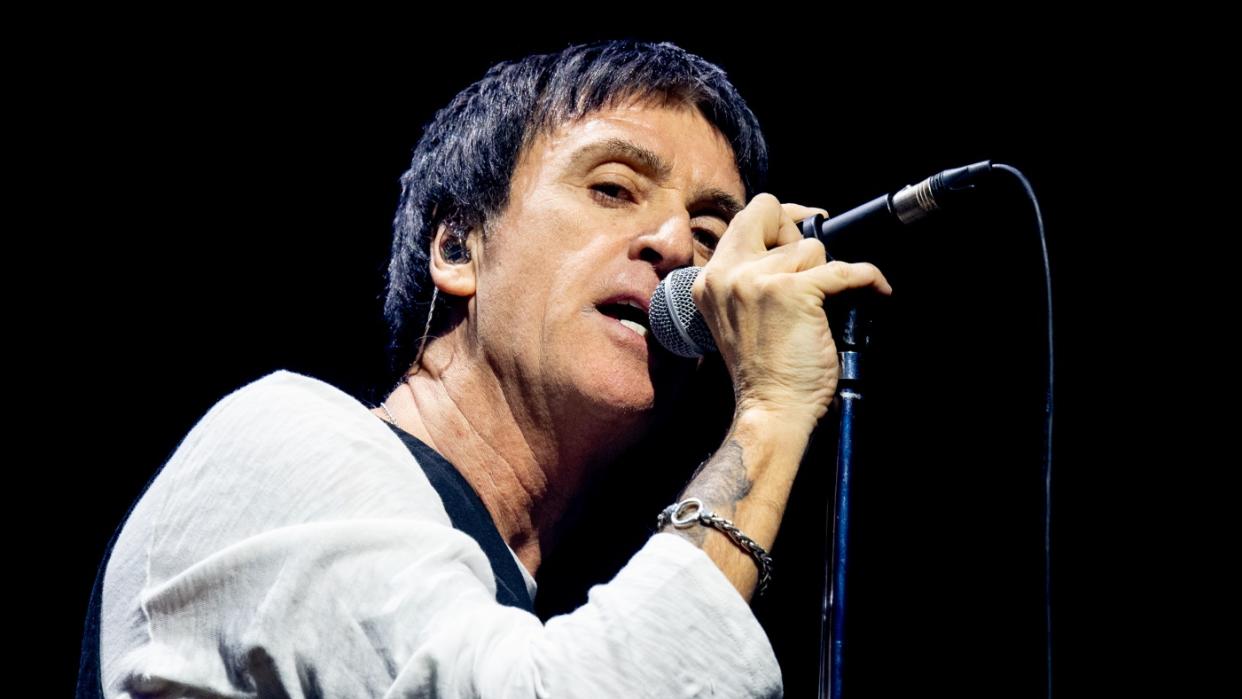The politics of music: should political rallies use well-known songs?

- Oops!Something went wrong.Please try again later.
- Oops!Something went wrong.Please try again later.
Election season increasingly sees politicians strutting their stuff to music that they hope will resonate with voters, but the trend is striking a duff note with song creators.
Donald Trump "isn't known for his love of" 1980s indie band The Smiths, said Politico, although their track "Bigmouth Strikes Again" could be an "ideal soundtrack" for his planned return to the White House. But after the band's hit "Please Please Please Let Me Get What I Want" was played at Trump rallies in South Dakota and New Hampshire this week, Smiths guitarist Johnny Marr has urged the former president to please stop.
Responding to an X post sharing footage from the Dakota rally, Marr wrote: "Ahh…right…OK. I never in a million years would've thought this could come to pass. Consider this shit shut right down right now."
British politicians have faced Marr's ire in the past. In 2010, he demanded that then-prime minister David Cameron stop professing his love for the band. "Stop saying that you like The Smiths, no you don't," the musician and songwriter tweeted. "I forbid you to like it."
'Political greats didn't need a soundtrack'
Marr is part of a long history of musicians who have protested against the use of their music by Trump and other politicians. Adele, The Beatles, Bruce Springsteen, Elton John, the Rolling Stones, Queen, Pharrell Williams and the estates of Prince, David Bowie and Tom Petty have all "objected in the past to Trump and his team playing their music at public events", said The Guardian.
Some acts, including the Stones, have issued cease-and-desist directives to prevent Trump's campaign from playing their music. Yet even then, Trump's campaign has "on occasion, continued to use their music after pledging not to".
Pop music has increasingly become a feature of British political life too, said the BBC's political reporter Brian Wheeler. Who could forget Theresa May "strutting on stage" to Abba's "Dancing Queen" at the 2018 Tory party conference? Some choices have been even more "bizarre", added Wheeler. Tony Blair "once took to the stage to the angry sound of Seventies punks Sham 69".
Yet the "political greats" of earlier times "did not need a soundtrack". Winston Churchill "never walked on stage to the Glenn Miller Orchestra or The Andrews Sisters", but such use of music "is everywhere now".
'Direct permission not required'
Although many musicians have been "frustrated" by the use of their music for political purposes, said Rolling Stone magazine, "there’s little they can legally do about it", in the US at least. There, politicians don't always need direct permission from artists, as their campaigns can buy licensing packages from music publishing "giants" such as BMI and ASCAP that authorise the public performance of "millions of songs" at campaign events.
And while artists do have the right to remove their music from such packages, many may not be aware their tracks are covered by the blanket licence until it is too late.
Multiple artists have been caught out by this loophole as the "battle between pop stars and politicians" rages on, said the BBC. Adele, Neil Young, Phil Collins and the estates of Tom Petty and Prince have all objected to Trump's use of their music during prior election seasons, but "only after the fact".
Fortunately for musicians in the UK, the situation is "clearer", the broadcaster added. PPL, the body that licences the use of recorded music, requires political events such as party conferences to "obtain permission from the relevant rights holder" before using a song.

